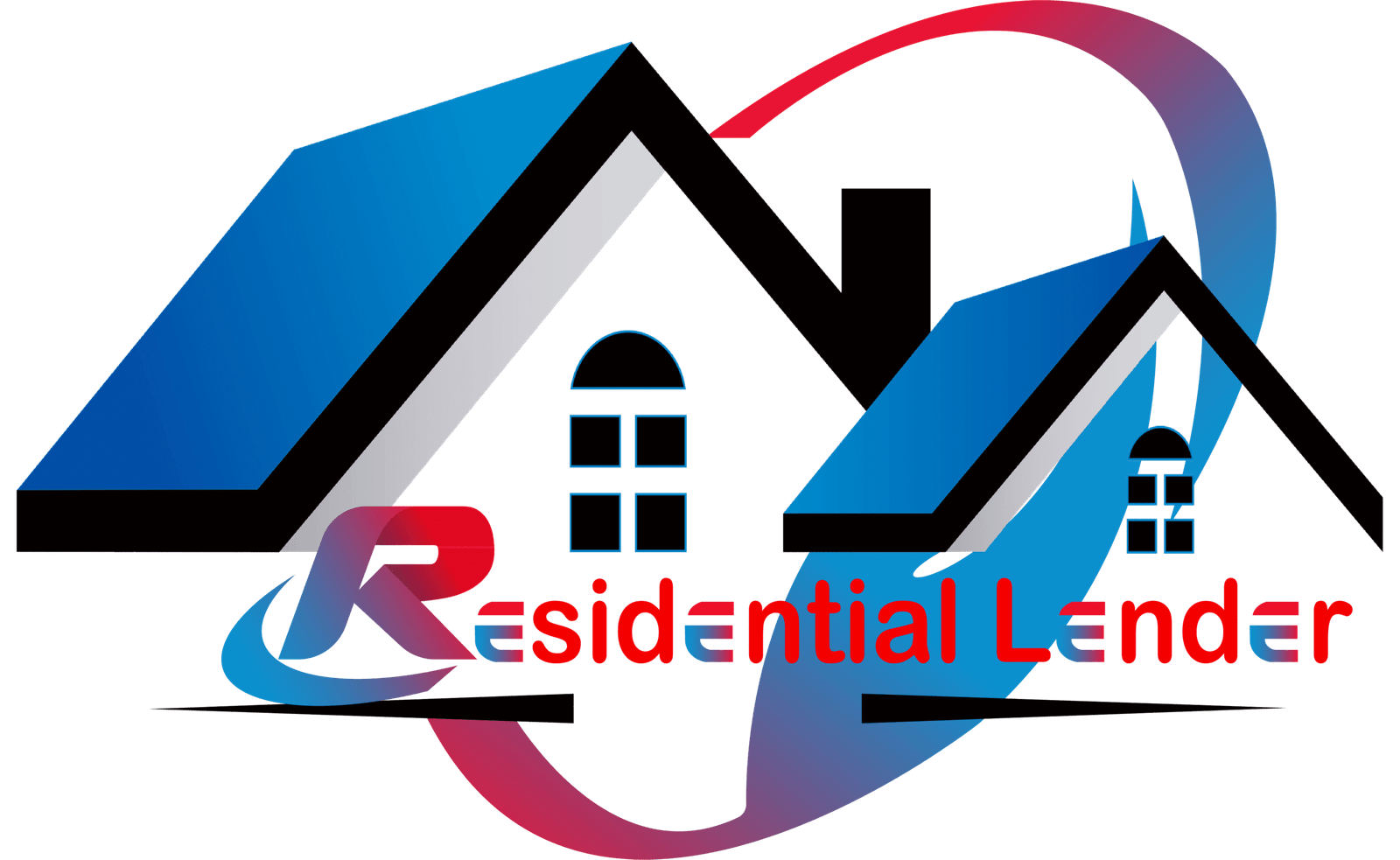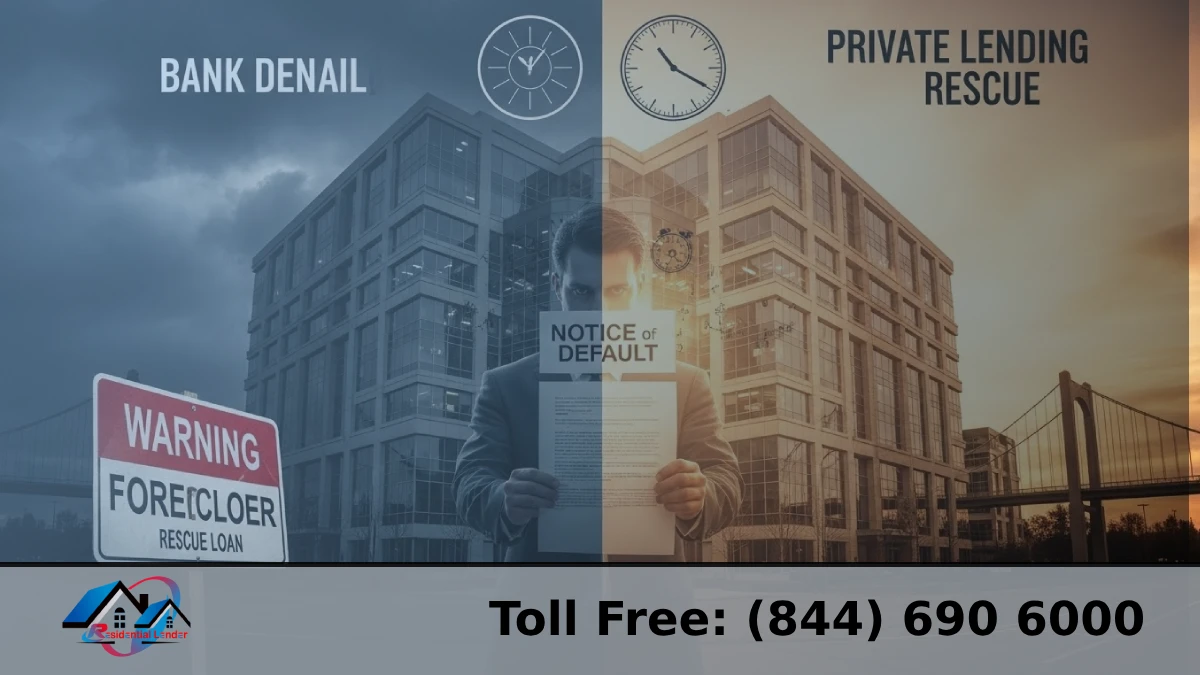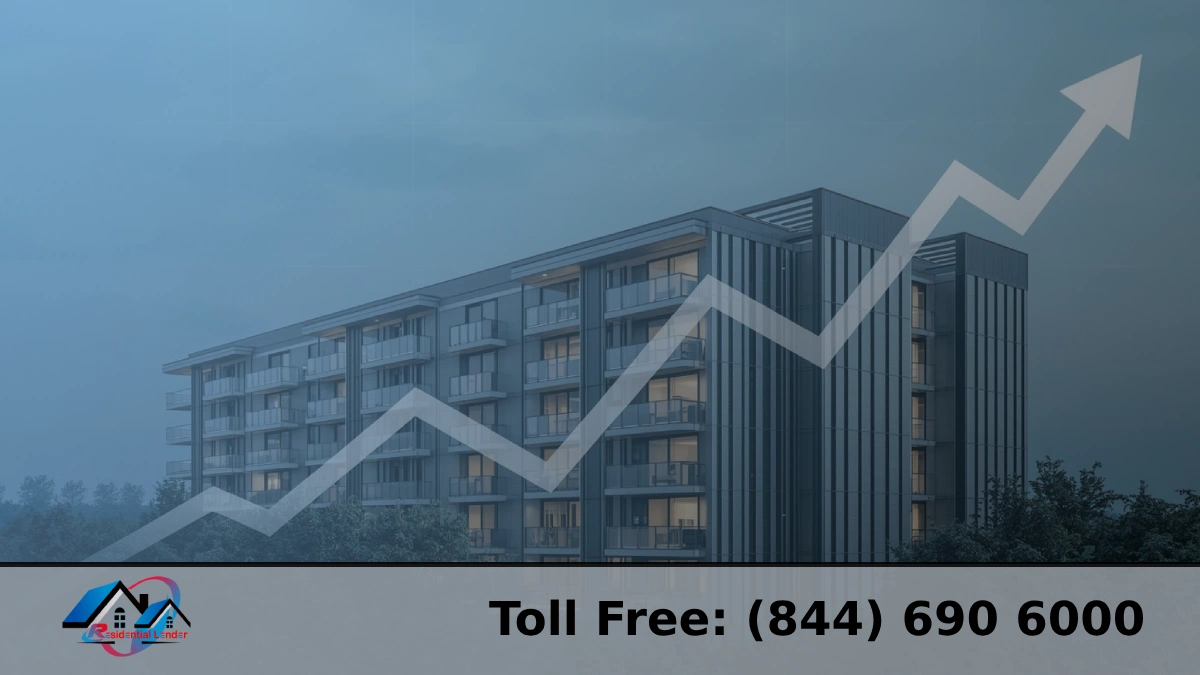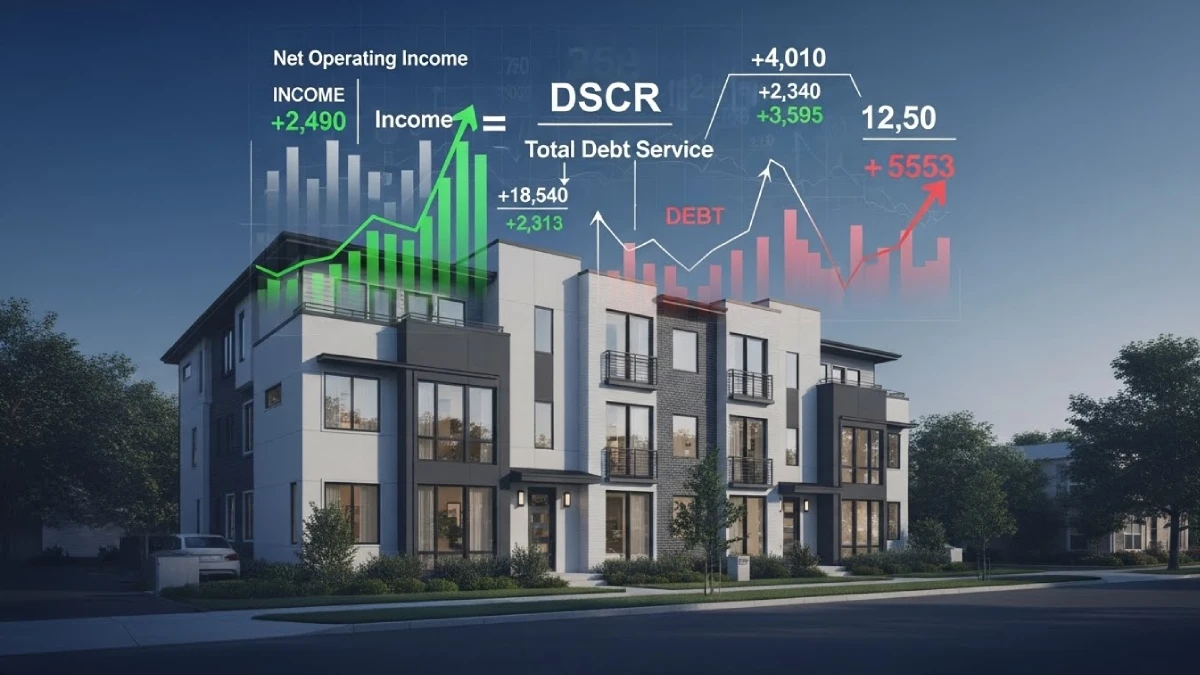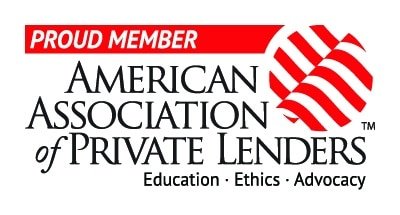Navigating the landscape of requirements for investment property loan can seem daunting, especially when a traditional bank denies your application. Many aspiring real estate investors experience frustration, not realizing that the underwriting process for an investment property differs significantly from that of a primary residence loan. Investment loans involve a higher level of scrutiny because the property’s income-generating potential, and thus the loan’s risk, is a primary factor. We recognize this pain point and are here to demystify the process.
At ResidentialLender.Net, we’ve successfully underwritten loans for three decades, helping countless clients secure financing for fix-and-flip, rental, and multifamily properties. You’ll need a different approach and a stronger financial profile to successfully navigate this market. For instance, according to the U.S. Census Bureau statistics, the national homeownership rate in the second quarter of 2025 was 65.8%, illustrating the robust and competitive nature of the real estate market you are entering. Understanding these stringent lending requirements for investment property loan is the first step. We simplify the process and outline the exact criteria you must meet, ensuring you can secure the necessary funding efficiently and with confidence.
The Three Pillars: Universal Requirements for Investment Property Loan
Down Payment Requirements Investment Property Loan (The Money You Need Upfront)
- Why 20−25% is the Standard: Unlike a primary residence, where you might secure an FHA loan with 3.5% down, investment properties carry a higher risk for lenders. Therefore, conventional loans generally require a minimum down payment of 20% to 25% of the purchase price. This larger equity stake serves as a buffer against potential losses in the event of the iinvestor’sddefault
- Lender Insight: With private, non-qualified mortgage (non-QM) and correspondent lenders (like us!), putting down a higher down payment (e.g., 30% to 40% or more) is a powerful tool. A greater equity position significantly reduces the risk perceived by the lender, often allowing us to unlock better interest rates, lower origination fees, and more flexible terms than those available through traditional banks.
Minimum Credit Score for Investment Property Loan (Is 640 Enough?)
Your credit score demonstrates your history of managing debt, but the minimum required varies significantly based on the loan type:
- Lender Insight: While the numbers above are a good benchmark, we leverage our extensive 200-lender private network to look beyond just the credit score. Suppose you have significant cash reserves, a solid investment track record, or a high-value asset. In that case, our private lenders can often approve loans even if your FICO score falls slightly below conventional requirements.
Debt-to-Income Ratio for Investment Property Loan (Your Cash Flow Equation)
Your Debt-to-Income (DTI) ratio is a measure of your monthly debt payments divided by your gross monthly income. For an investment property loan, this concept is often more flexible because the asset itself generates income that offsets the new debt.
- Simple Explanation: A traditional bank loan calculates DTI by only counting your personal debts (car payments, student loans, etc.). When you seek an investment property loan, your future rental income helps balance the scales. Lenders are more concerned with the overall viability of the investment’s cash flow.
- Key Concept: Qualifying Rental Income: Lenders don’t count 100% of the projected gross rental income towards your income side of the DTI calculation. They typically apply a reduction factor, often referred to as the 75% Rule (meaning they only credit 75% of the gross monthly rent). This 25% reduction accounts for anticipated vacancies, maintenance, repairs, and property management fees, ensuring the property can still cover its debt service even in the event of market fluctuations.
| Loan Type | Typical Minimum Credit Score | Primary Focus |
| Conventional/Fannie Mae | 680−720+ | Borrower’s credit history and overall financial stability. |
| Hard Money Loans | 600−640 (or lower) | The value of the asset/property itself (ARV: After Repair Value). |
| DSCR (Debt Service Coverage Ratio) Loans | 640+ | The property’s projected rental income vs. the mortgage payment. |
Beyond the Basics: Understanding Reserves and Property Expertise
What Are the Reserves Required for Investment Property Loan? (Cash is King)
In addition to the down payment and closing costs, lenders require you to have reserves, which are liquid cash remaining in your bank or brokerage account after the loan has closed.
- Definition: Reserves are typically calculated as the amount needed to cover six to twelve months of the Property’s Principal, Interest, Taxes, and Insurance (PITI) payments.
- Context: Reserves are a crucial component of requirements for investment property loan because they provide a safety net against vacancies or unexpected repairs. For instance, the required reserves for a second home vs. rental property will differ. An actual investment rental property (non-owner occupied) typically requires stricter reserve requirements (often 6-12 months) than a second home (which might only need 2-6 months), as the investment property carries the inherent risk of fluctuating rental income. Lenders want assurance that you can cover the mortgage even if the property sits empty for several months.
Investment Property Loan Requirements for First-Time Investors (Starting Strong)
The journey to securing your first investment property loan can feel challenging, as lenders prefer a proven track record.
- Straightforward Advice: The first property is always the hardest. To overcome this hurdle, focus on presenting a clear and well-researched business plan that details your strategy (buy-and-hold or fix-and-flip) and provides a conservative projection of rental income and expenses. This demonstrates seriousness and competence.
- Our Value: ResidentialLender.Net offers specialized financial consulting services to guide you through the intricacies of that initial step. We help first-time investors structure their finances and present a compelling application, making it easier to build that crucial real estate portfolio from the ground up.
How to Qualify for Investment Property Loan Self-Employed (Show Me the Money)
Self-employed investors often face a roadblock with traditional banks because tax deductions aggressively lower their reported income, making it difficult to qualify for a loan based on standard Debt-to-Income (DTI) ratios.
This is where we offer alternatives to traditional documentation:
- “Lite-Doc” Solutions (Bank Statements): We can often qualify you using your personal or business bank statements (typically from the last 12 or 24 months) to demonstrate cash flow, rather than relying solely on tax returns.
- “No-Doc” Solutions (DSCR Loans): These loans use the property’s cash flow to qualify, completely bypassing your personal income and DTI.
Solution: We highlight our specialized state income loans and no-doc DSCR loans as tailored solutions. These programs recognize the unique tax situation of the self-employed investor, allowing you to qualify based on real, verifiable cash flow and the asset’s performance, without penalizing you for thoughtful tax planning.
Your Lending Options: Match the Loan to Your Investment Goal
When Bad Credit Strikes: Can I Get an Investment Property Loan with Bad Credit?
Yes, absolutely. While conventional banks heavily rely on high credit scores, a lower score doesn’t disqualify you from securing an investment property loan, especially if the property itself is a strong asset.
- LSI Focus: If your credit profile is challenged, the key is to shift focus to the asset’s value and your available equity. Hard money loans and private lenders prioritize the After Repair Value (ARV) of the property over your personal FICO score.
- Our Solution: At ResidentialLender.Net, we are a table and correspondent lender with a proprietary network of over 200 private lenders and investors. This depth allows us to underwrite risk creatively. We can approve investment property loans that traditional institutions reject by structuring deals that emphasize collateral and cash reserves, making funding accessible even with less-than-perfect credit.
The Power of Flexibility: DSCR Loan Requirements for Investment Property
For experienced investors seeking to rapidly grow their portfolios without the hassle of documenting personal income, the DSCR loan is the premier solution.
- In-depth: DSCR stands for Debt Service Coverage Ratio. This loan type allows you to qualify based solely on the property’s projected cash flow, rather than your personal income, W-2s, or tax returns. The DSCR is calculated by dividing the property’s anticipated net operating income by the proposed principal, interest, taxes, and insurance (PITI) payment. A ratio of 1.25, for example, means the property generates 125% of the cash needed to cover the debt.
- Benefit: This eliminates the frustrating no-income-verification hassle of no-income-verification investment property loan requirements. If the property’s rent can sufficiently cover its debt—typically a DSCR of ≥1.0 (break-even) to ≥1.25 (positive cash flow) is required—the property pays for itself. The loan is approved without extensive personal income documentation.
Beyond Conventional: Solutions for Every Investor
We offer a diverse portfolio of specialized loans to match every investment strategy:
- Fix-and-Flip/Fix-and-Hold: We offer bridge loans and Construction loans that provide fast, short-term funding (typically 6-18 months). These solutions are ideal for quickly acquiring distressed properties, funding rehabilitation costs, and exiting the loan through a refinance or sale.
- Multifamily/Mixed-Use: For larger projects, we have expertise in underwriting SBA loans for owner-occupied business use, FHA multifamily property investment loans (specifically for properties with 5 or more units), and DSCR loans tailored for 2-4 unit residential properties, simplifying financing for portfolio expansion.
- Rural Investment: We specialize in USDA Business & Industry (B&I) loans, which are federally guaranteed loans designed to promote development for business and industrial properties in eligible rural areas, providing unique funding access for geographically specific investments.
Document Checklist for Investment Property Loan Application (Be Ready to Go!)
Preparing Your Financial Portfolio for a Smooth Close
Getting your documents in order before applying is the most critical step to a fast closing. The specific paperwork required depends heavily on the type of investment property loan you choose, but all categories require thorough preparation.
| Category | Conventional Loan (W2) | Self-Employed / Lite-Doc | DSCR Loan (Rental Focused) |
| Income Proof | Last 2 years’ Tax Returns, W2s, and most recent Pay Stubs | Bank Statements (12-24 months), Business P&L, sometimes a CPA Letter | Property Appraisal (with Rent Schedule) & Proposed/Executed Lease Agreement |
| Assets | Bank/Brokerage Statements showing cash Reserves, Retirement Accounts (if needed) | Bank/Brokerage Statements showing cash Reserves | Bank/Brokerage Statements showing cash Reserves |
| Credit | Full Credit Report & Score (pulled by lender) | Full Credit Report & Score (pulled by lender) | Full Credit Report & Score (pulled by lender) |
| Property | Executed Purchase Agreement, Appraisal, Title Report | Executed Purchase Agreement, Appraisal, Title Report | Executed Purchase Agreement, Appraisal, Title Report |
Lender Insight: With 30 years as an underwriter, we understand that incomplete documentation is the leading cause of closing delays. For any requirements related to investment property loans, organizing these documents upfront ensures a smooth and efficient process, allowing you to secure your property faster.
Don’t Go It Alone: Why Partnering with ResidentialLender.Net is Your Best Investment
Exclusive Referral Programs for Brokers (A Win-Win Partnership)
We believe in mutually beneficial relationships and are actively expanding our network of valued partners. Whether you are an experienced mortgage broker or new to the field, we invite you to collaborate with us.
- Value Proposition: We offer exclusive and non-exclusive referral programs tailored for residential investment properties. By partnering with us, you gain access to our extensive product line, which covers all property types, including fix-and-flip, mixed-use, rental portfolios, and multifamily buildings. We provide the underwriting expertise and certainty of funding needed to secure your clients’ deals quickly and efficiently, ensuring client satisfaction and repeat business for you.
The ResidentialLender.Net Advantage (Your 30-Year Expert Underwriter)
When pursuing investment real estate, you need more than just a loan; you need a strategic partner. We offer a distinct advantage:
- Years of Underwriter Experience: Our deep expertise ensures rapid processing and certainty of closing, eliminating the frustration of last-minute bank rejections.
- Table and Correspondent Lender Status: This allows us to offer some of the most competitive rates and favorable terms by providing direct access to capital markets.
- Private Lenders Network: For complex or unique deals that fall outside standard parameters, our extensive network offers options and flexibility that others simply cannot match.
Stop wasting time with traditional banks that don’t understand the nuance of investment properties. The path to real estate wealth begins with understanding the right requirements for an investment property loan. We offer the fastest and simplest financial consulting to help you get funded.
Ready to discuss the specific requirements for investment property loan for your project? Contact our financial consulting team today for a free, no-obligation strategy session.
FAQs
1. What is the maximum number of investment properties I can finance using conventional loans?
The conventional loan limit set by Fannie Mae is generally 10 properties (1-4 units) with mortgages in your name. However, the requirements get stricter after the fourth loan.
- For loans 1-4, you typically need a credit score of 620+ and standard down payment/reserve requirements.
- For loans 5-10, you’ll need a higher credit score (often 720+) and significantly larger cash reserves for each property to qualify.
2. What are “recourse” versus “non-recourse” loans, and which is an investment property loan usually?
- Recourse Loan: If you default, the lender can seize the collateral (the property) and pursue your personal assets (e.g., bank accounts, wages) to cover any remaining debt (the deficiency). Most conventional investment property loans are recourse loans.
- Non-Recourse Loan: The lender’s recovery is limited to the collateral property only. If the sale doesn’t cover the full debt, the lender must absorb the loss and cannot pursue your personal assets. These are typically reserved for larger commercial or institutional loans and carry higher rates.
3. Can I use the rental income from an existing investment property to qualify for a new loan?
Yes, you can use income from your current rental properties to help qualify for a new investment loan. Lenders consider this income as part of your overall financial picture, which helps to lower your DTI. Similar to the income from the new property, lenders typically use 75% of the gross monthly rent from the existing property to account for vacancies and operating expenses.
4. Are the closing costs higher for an investment property loan than for a primary residence?
Yes, closing costs for an investment property are often higher, typically ranging from 3% to 6% of the loan amount. This is due to several factors:
- Higher Fees: Investment properties typically incur higher loan origination and underwriting fees due to their perceived higher risk.
- Larger Reserves: The prepaid portion of property taxes and insurance (held in escrow) may be higher due to the stricter reserve requirements for investment properties.
5. What unique requirements apply when financing multi-unit properties (5+ units)?
Multi-unit properties with five or more units are generally classified as commercial real estate, rather than residential. The requirements for investment property loan change significantly:
- Commercial Loans: You’ll typically use commercial mortgages, which have shorter terms (e.g., 5-10 years), often require higher down payments, and are underwritten differently than residential loans.
Specialized Programs: Lenders often utilize specialized financing options, such as Fannie Mae and Freddie Mac Multifamily loans or FHA/HUD loans for properties with 5 or more units, which have their own stringent financial and property-specific criteria.
